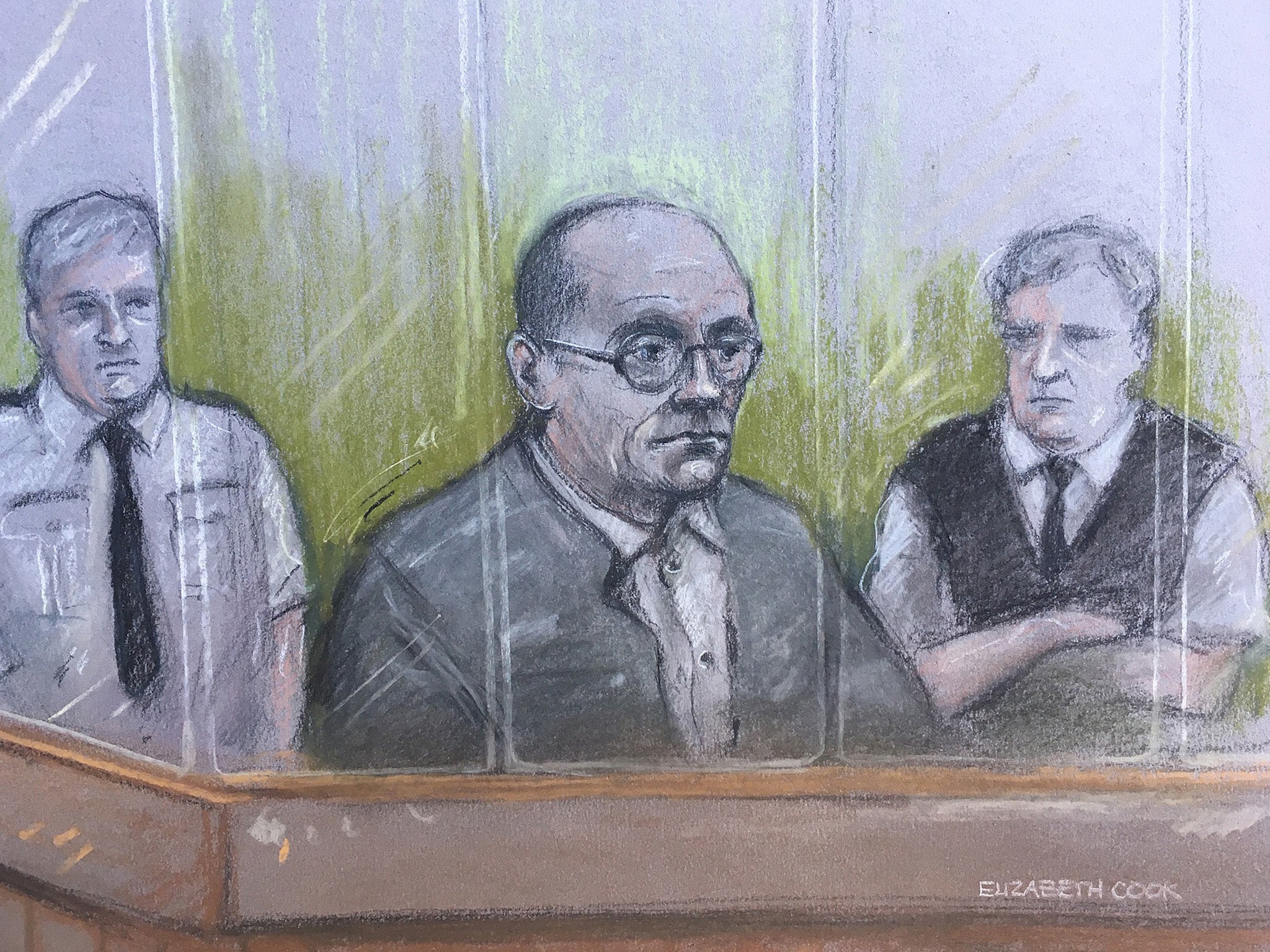Paedophile denies murdering nine-year-olds - but admits sexually assaulting seven-year-old then lying about it
When asked whether he had lied in court during his 1990 trial, Bishop admits: 'I didn’t tell the truth in any way shape or form'

A convicted paedophile has told a court he sexually attacked a seven-year-old girl but denied murdering two nine-year-olds in 1986.
Russell Bishop, 52, is on trial accused of sexually assaulting, strangling and killing Karen Hadaway and Nicola Fellows in Wild Park, Brighton, on 9 October 1986.
When he entered the witness stand at the Old Bailey, the first question he was asked by his defence barrister Joel Bennathan QC was: “Did you kill Karen Hadaway?”
Bishop replied: “Err, no I didn’t.”
The second question was: “Did you kill Nicola Fellows?”
Bishop answered: “No I did not, no.”
The jury has heard that after a trial in December 1987, Bishop was acquitted of murdering the two girls.
He is facing a second trial, however, after new DNA evidence came to light and the Appeal Court quashed the 1987 acquittal.
The court has also heard that in 1990, three years after he was acquitted, Bishop abducted a seven-year-old girl, sexually assaulted her and left her for dead at a Sussex beauty spot.
When Mr Bennathan asked him whether he had been given a life sentence for this offence, Mr Bishop replied: “I am ashamed to say I was, yes.”
When asked whether he had lied in court during his 1990 trial, Bishop admitted: “I didn’t tell the truth in any way shape or form.”
Accepting the agreed facts of the 1990 case, he added: “I accept what has been said. I feel deeply ashamed.”
He claimed he had been in “a bad, bad state” at the time of his 1990 crime, and on the day in question he found the brake lines of his car had been cut for what he told the jury was about the eighth or ninth time since he walked free from court at the end of the 1987 trial.
Immediately before abducting the girl, he said, he had been in a “wild temper” because he had hurt himself while changing the wheel of his car.
As he defended himself against claims he murdered Karen and Nicola in 1986, Bishop insisted he had checked the two girls’ pulses to confirm they were dead after they were found in an ivy-covered den in the park.
Asked about the claim made by one of the two young men who found the bodies that he never entered the den, he replied: “That’s incorrect. That’s a lie.”
The court heard that according to a detective’s notes of a police interview on 15 October 1986, Bishop kept changing his story from saying he checked for a pulse to saying he hadn’t.
In the Old Bailey witness box, Bishop, who was 20 at the time, claimed that over the course of 13 hours his interrogators had “totally bullied” him into saying what they wanted to hear.
They were, he told the jury, “downright nasty” and had “absolutely destroyed me in that room”.
Bishop, who admitted to leaving school with no qualifications, added that he “started getting all frustrated, confused, tied up in knots, which wasn’t hard for someone to do then.”
He said that in the end, he signed a statement saying he had not felt for a pulse because it was “the only way to get out of there.”
Referring to the DNA evidence that has now been presented by the prosecution to suggest contact between him and the murdered girls, Bishop added: “It was obvious they [the police] weren’t going to believe me over those boys [who found the bodies]. I had no evidence I had felt for a pulse. I have now. I have DNA.”
Asking him about the moment he checked the pulse in Nicola’s neck and Karen’s right arm, Mr Bennathan said: “You realised they were dead?”
“I did indeed,” replied Bishop, adding that he felt “shocked and totally sickened and numb.”
Describing how he had joined the search before the girls were found, Bishop admitted telling a police officer he was worried that if the girls were dead and he found the bodies, he would be suspected of being the killer.
But he told the jury that this was because of the past experiences of himself and his family.
He had, he said, briefly been wrongfully arrested in connection with the 1984 Brighton bomb of the Tory party conference.
When he was aged about 12, he added, his father was wrongfully arrested in connection with the murder of Margaret Frame, who had been found in a shallow grave in Stanmer Park, Brighton.
On the morning he left the house to join the search for the still-missing girls, he told the court: “The old man said, ‘Don’t get involved’.”
“I wish I hadn’t got involved,” Bishop added.
He told the court that on the day of the murders, he had worn a “flecky” sweatshirt with a diagonal stripe across it, not the Pinto-branded top that the prosecution alleges the killer wore.
After getting home to catch the last five minutes of EastEnders, he said, he had put a bundle of clothes, including those he had worn during the day in the wash because they were “dirty”.
Explaining why he had lied to the police in some of his statements, he said it had “seemed a good idea” at the time to avoid saying that he had attempted to steal a Ford Escort from Sussex University car park and had gone to see a friend to buy a sixteenth of an ounce of cannabis.
Bishop denies two counts of murder.
The trial continues.
Subscribe to Independent Premium to bookmark this article
Want to bookmark your favourite articles and stories to read or reference later? Start your Independent Premium subscription today.
